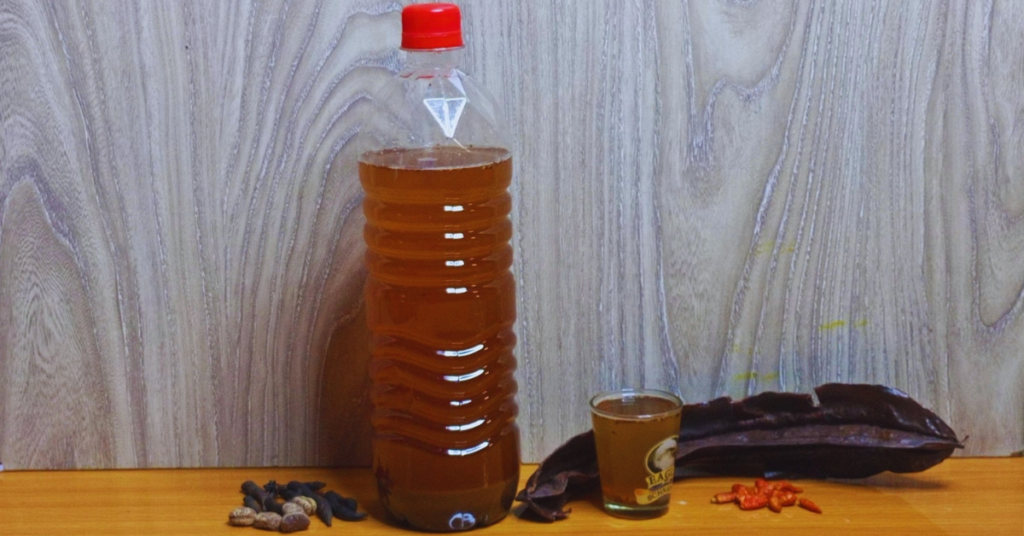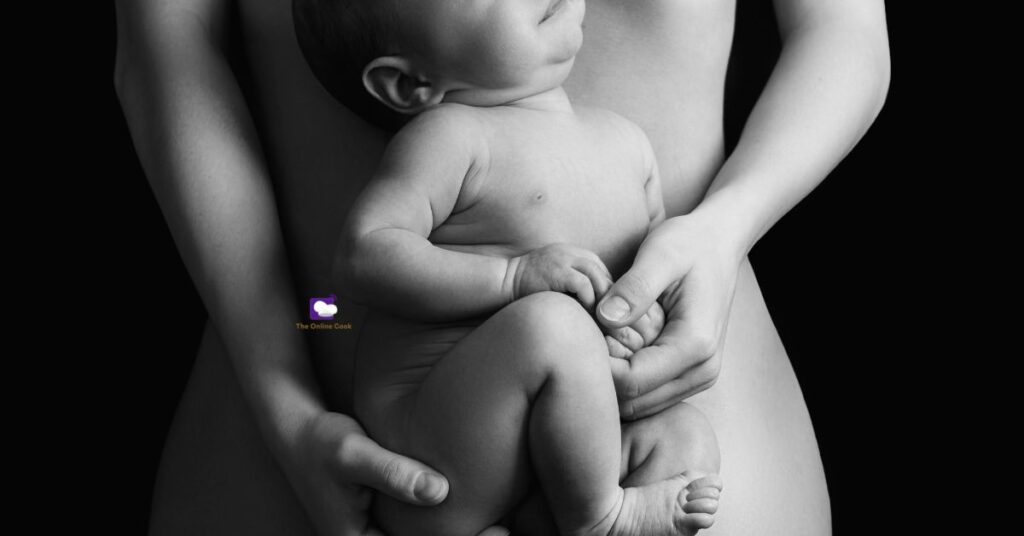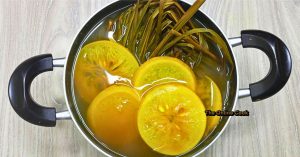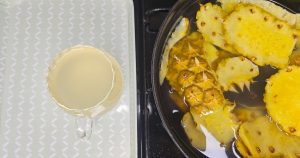

Most cultures around the world have their own form of postpartum care but this blog post will focus on how postpartum care is done by the Yoruba tribe in Nigeria.
It will also include recipes of how to make different postpartum care foods as well as a wide sought-after recipe of how to make a potent postpartum drink that helps the body heal from inside out.
I will be explaining what postpartum care means to the Yoruba people in Nigeria and the various steps in postpartum care daily routine.
What is Postpartum care
In Yoruba land, postpartum care is seen as the care given to a woman giving after birth to a baby which is usually provided by an older woman in the family, it can be done by the mother-in-law but preferably the woman’s mother.
In Eastern Nigeria, the Igbos call this omugwo.
It is important to state that, it is believed that the wellness of a new mother is linked to how well her newborn is faring.
As a result, this care is not only for the new mother but an all-encompassing one which includes the new baby as it is used to help the new mother transition into motherhood and also to assist her while she takes enough rest in order to regain her strength.
In order to achieve wellness for the new mother and her baby the below-stated daily care routines are taken very seriously.
- New baby baths
- Postpartum baths and body massage
- Vaginal Steaming
- Belly binding
- Postpartum foods and drinks
New Baby Baths
New baby baths are given to the new-born every morning and night for 7 days.
After mother and child has been discharged from the hospital, the baby is given a special bath while massaging the baby’s body as well as checking the baby’s joints.
It is believed that this bath will clears all womb-fluid residue which can make the baby have body odour if not completely cleaned.
The body and joint massage is done to ensure flexibility and also to check that there are no stiff joints in the baby’s body.
This bath is done with the use of an all-natural exfoliating sponge which the Yoruba’s call Kankan ibile which means Native sponge and a native plant-based soap called Ose Dudu or black soap as it is commonly called.
Kankan Ibile has been used for personal care by adults and babies for centuries because of its ability to gently exfoliate the skin while revealing a glowing skin.
In the same vein, Ose Dudu is also a centuries old soap made from plants and is a suitable for all skin types. Infact Authentic raw black soap is even capable of relieving some skin conditions such as pimples, eczema, ring worm and many more.
If you would like to buy this native sponge, black soap or both you can find it in my shop. Click the link below.
Postpartum baths and body massage
It is a norm for a new mother to take her bath with warm water for at least one (1) month.
This is because, it is believed that during childbirth all the pores on a woman skin are opened during labour and as a result it is important for her to bath will only warm water.
Also, during her morning and night baths she would be given a thorough body massage which many women find painful but necessary to return the body back to the normal form before childbirth.
The body massage is usually done before the new mom takes her bath and it entails moulding, pressing and shaping the new mother’s body with wash cloth that has been put in hot water.
This is an intimate routine which most women prefer to have their mothers do for them hence the reason for this Yoruba greeting “eku owo lomi”.
Although, in some cases where their mothers are not available, the mother-in-law does it.
It is usually done in the bathroom, and this is how it is done.
- Hot water is poured into a bowl and a napkin or washcloth capable to retain heat is put into the hot water.
- The older woman removes the washcloth from the hot water and squeezes well enough to remove most of the hot water
- The new mother stands with back against the wall while the older woman massages her body from head to toe against the wall with the semi-hot washcloth
- When the front is done, the new mother will turn to rest her front against the wall while her back is massaged.
It is very common to see blood clots come out from the woman’s vagina as this is done because the massage aims to push out the blood that may form blood clot in the woman’s stomach.
Many women also take their bath with Ose Dudu black soap because it helps get rid of certain skin conditions like eczema, acne etc with appears on some women’s skin immediately after childbirth.
Also, if the new mom’s breastmilk is not coming out yet, a special massage will be done with the hot washcloth on her breasts to get her breast milk flowing.
After this massage, the new mother then takes her bath with warm water and the proceeds to do vaginal steaming.
Vaginal steaming
Vaginal steaming is an important part of postpartum care and after the postpartum bath and body massage, new mothers are required to do vaginal steaming.
Here are some of the benefits of vaginal steaming.
- It reduces bloating, fatigue and heavy.
- It aids fast recovery after childbirth.
- It helps with the detoxification of the womb.
- It is also believed to health balance the hormones.
- Tightening the vagina
Sincerely, vaginal steaming could be quite painful for a new mom but in view of the perceived benefits especially the fact that it can help heal faster, many women endure the pain and go through with it.
This is how to do vaginal steaming is done traditionally.
- Get a thick bowl that can fit into your toilet seat use a vaginal steaming bowl
- Fit the bowl into your toilet and pour hot water into it
- Pour salt into the water
- Mix well and sit on it for 20 – 45 minutes.
Many times, the new mom would have to stand up from the steaming bowl at varying interval to get some relief from the heat.
But many mothers, especially moms who had vaginal tears during childbirth vouch that this routine helped them heal faster.
After the bath routines, it is time for the new mom to get dressed and this will lead me to write about the next postpartum routine which is belly binding.
Postpartum belly binding
This is an effective postpartum recovery routine which helps postpartum body shrink back to its form in a shorter time usually between 6 to 8 weeks.
The abdomen is wrapped tightly with a fabric in order help support the new mother to get back in shape.
This method helps the abdominal wall muscle retract, improves posture and also return vital organs to their original size before pregnancy.
Postpartum foods and drinks
Although many new moms are advised to always eat warm foods, typically a new mother can eat most foods as long as the food does not have high sugar or salt content and it can be easily digested.
However, some foods, soups and drinks are traditionally encouraged because they form a vital part of postpartum care .
- Pap – Pap is a semi liquid food made of whole grains such as guinea corn, white corn, yellow corn, sorghum, millet. It is also known as Ogi, by the Yorubas, Akamu by the Igbos and Koko by the Hausas. This food is traditionally encouraged because drinking pap helps the body produce more breastmilk for the baby. Akamu Recipe | Pap/Ogi Recipe You can click this like to read more on how to make Akamu. There is also a video recipe attached as well.
- Palm wine – Palm wine is a whitish drink extracted from the palm tree. Before Fizzy drinks became trendy, palm wine was commonly consumed. Palm wine in its fresh form is non- alcoholic but when left to ferment it becomes alcoholic. New mothers who have trouble producing breast milk are encouraged to drink fresh palm wine as it stimulates breast milk production.
- Marugbo soup – Marugbo soup is a native soup of the Ikale and Ilaje people of Ondo state in Nigeria. This soup is cooked with preferred animal protein of choice – preferably fish, plants, herbs and spices that helps to build the body’s immune system. There is a separate article on this blog that contains all you need to know about marugbo soup. Marugbo Soup Recipe || Obe Eweta || Ikale Black Soup
- Pepper soup – As the name suggests, pepper soup is a watery spicy soup made with a wide assortment of blended herbs and spices cooked with animal protein of choice – preferably fish – and vegetable of choice. Pepper soup is great for kickstarting the body metabolism and you can read more about it here How To Make Nigerian Croaker Fish Peppersoup
- Postpartum hot drink – Taking this hot drink at least three times daily is recommended in order for facilitate fast recovery for the new mother from Inside out
How to make Postpartum Hot Drink

Ingredients
- 1 Alligator pepper
- 4 ataare – Chilli pepper
- 1 tablespoon iyere – black pepper
- Eeru or negro pepper
- 1 tablespoon kanafuru – cloves
- 1 tablespoon abolakoshe – Ehuru
- Aidan – Prekese
- 1 bottle of aromatic Schnapp
Preparation
- Wash and sterilize bottle with lid then set aside
- Cut open the alligator pepper po and remove the tiny black pepper
- Pour the remove alligator pepper into a dry mill
- Add chilli pepper, black pepper, Negro pepper, cloves, ehuru and prekese
- Blend everything to powder form
- Open the bottle of aromatic Schnapp and pour it into the cleaned bottle
- Add the blended spices powder and cover with the lid
- Shake well and set aside for 12 hours
- After 12 hours Postpartum hot drink is ready to be consumed 3-4 times daily
Please note that after taking this drink, you will feel hot from within, and this feeling is normal. You will also start to sweat from head to toe.
The sweating may be more especially if you are a naturally sweaty person. However, if you feel very uncomfortable, it is advisable to immediately take your bath with lukewarm water not cold.
This has been a long post and I would like to thank you for sticking with me all through it and reading to the end.
If you would like to watch a video of how to make postpartum hot drink, it is available on my YouTube channel and while you are there, don’t forget to subscribe.


Good day.
Can a Postpartum Hot Drink be taking by a mother who did cesarean section?
It is advisable for a caesarian section mom to take this drink because it may react negatively with the drugs she is already taking.
I regret C’s delivery cus right now I am going through depression and so on. Ever since I did C’s first time mum. I have been having irregular periods that stays for weeks to month. I didn’t do any postpartum care bcus of C’s.
As I speak I am scared of seeing that irregular period cus when it starts I don’t go out.
Dear Ruth, please don’t regret anything. Just like every other woman out there, you are a brave and strong woman and always remember that everything will be okay.
Thank you so much for this post. I am not a mother yet but I have been curious lately on post partum care especially since one day will be one day right.
I will be sure to save this post for future use. Thank you once again.
you are welcome. I am happy to be of help.
Hi ma’am… Goodday. My name is Mary, please I need a solution. I’m a first time mother, birth through C section and we’re 2 months now, my belly looks like am 5months pregnant 😳😳. Please which herb can I take to reduce the tommy that will not affect ulcer.
Hello, I would advice that you see a medical professional to get proper help needed. This is because It is not advisable to take herbs without proper prescription as it may aggravate the ulcer
Hello, how can I do the post partum bath and body massage after a cesarean? Would the pressure of the massage need to be adjusted and more sessions done? To still achieve good results.
No you cannot do the bath and body massage after a caesarean. It may cause complications. Please don’t try it at all.